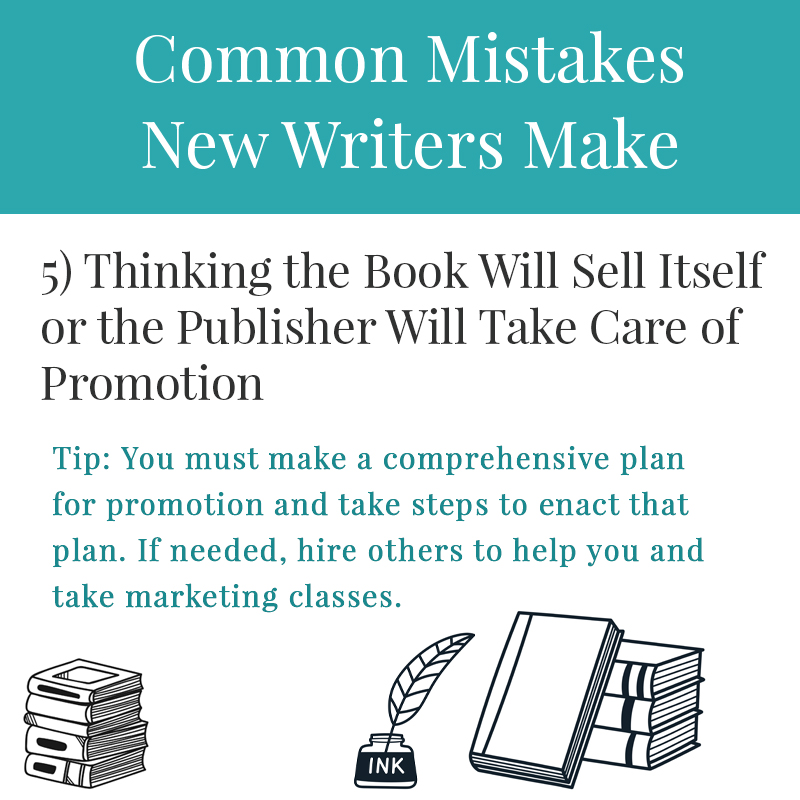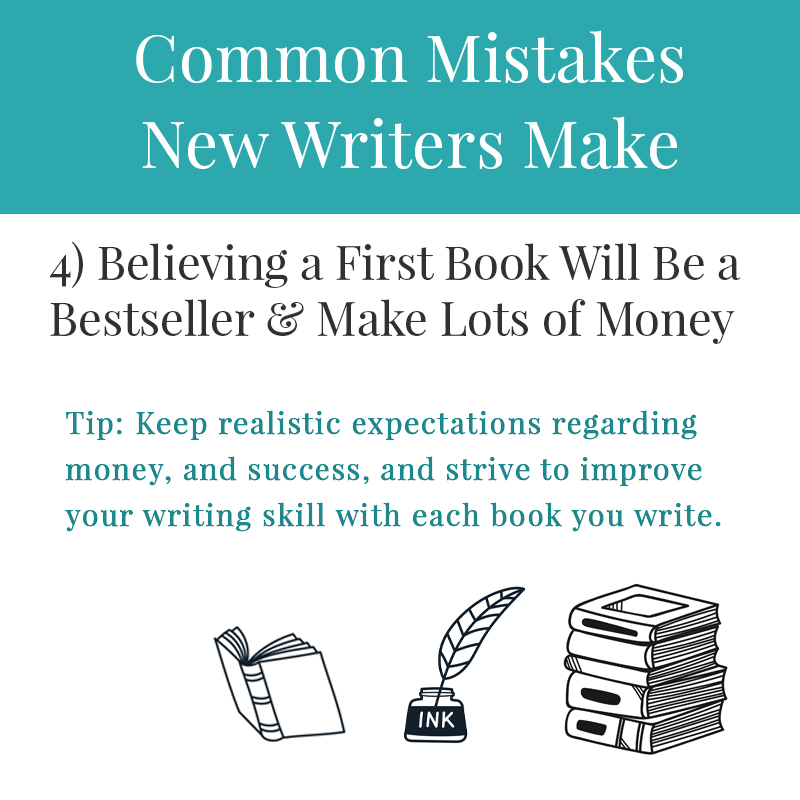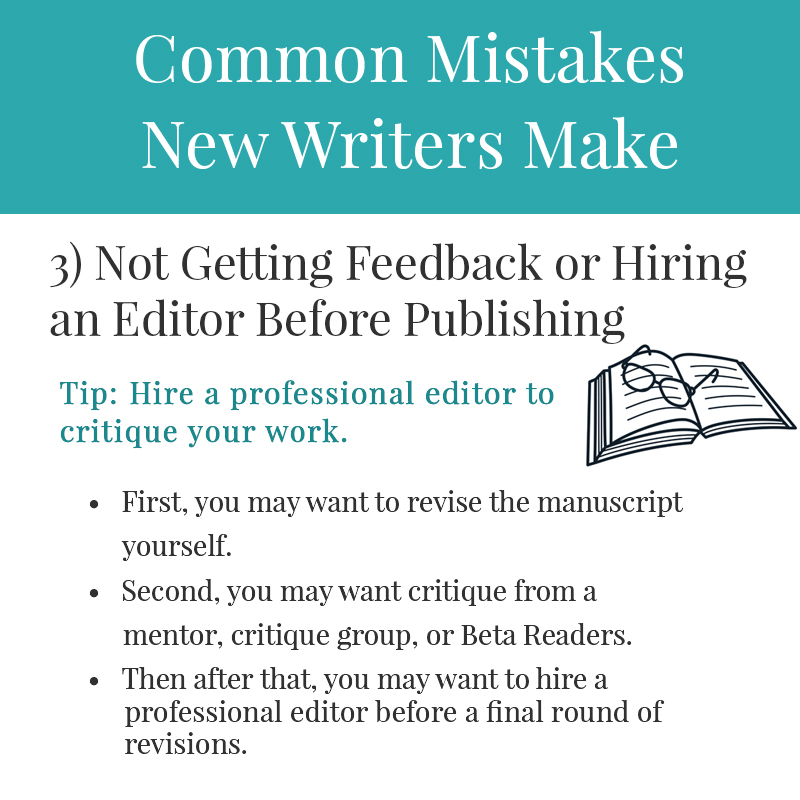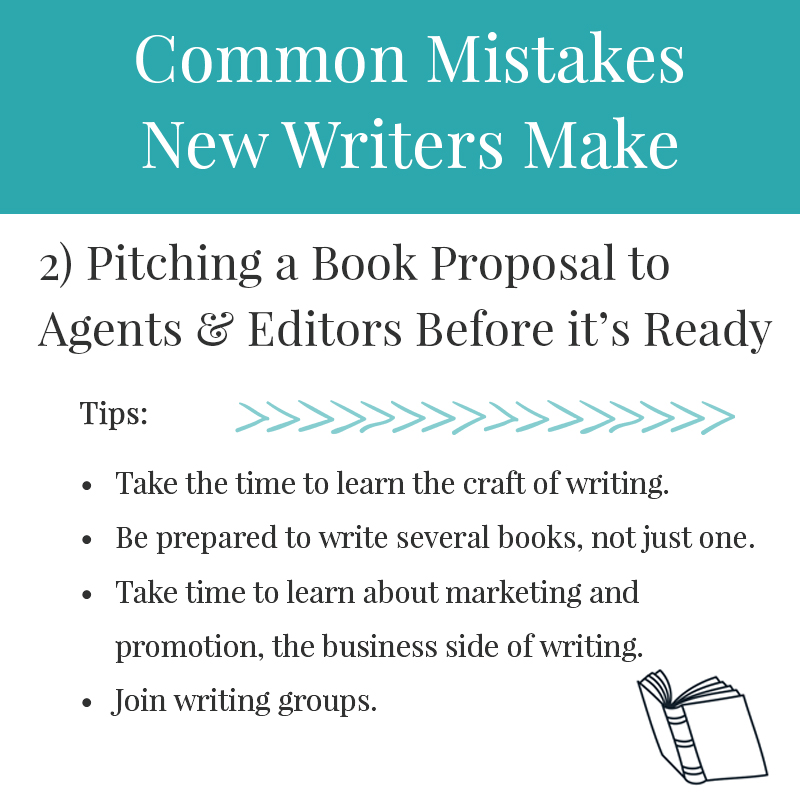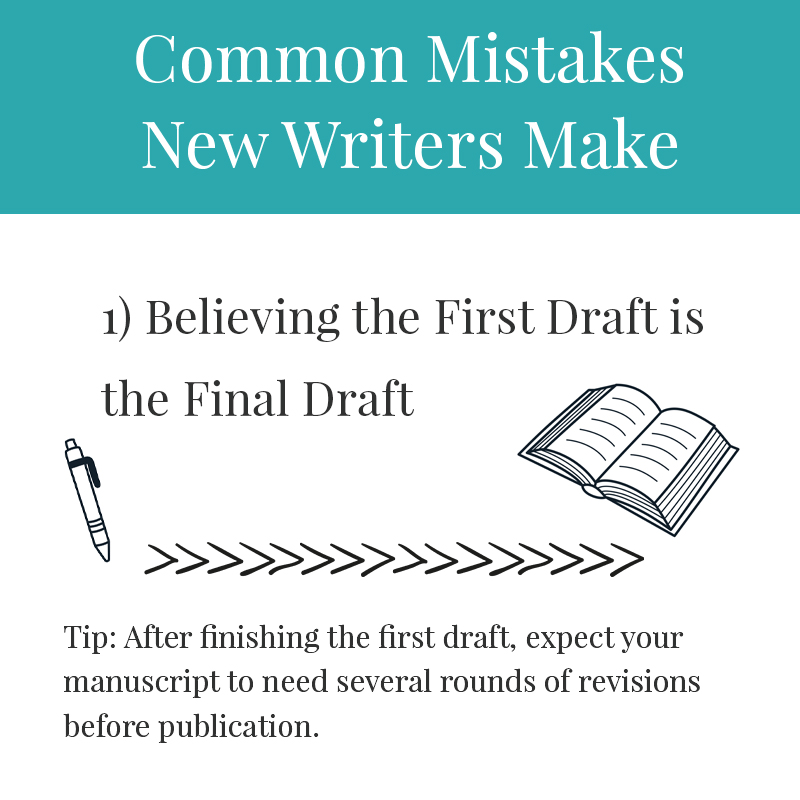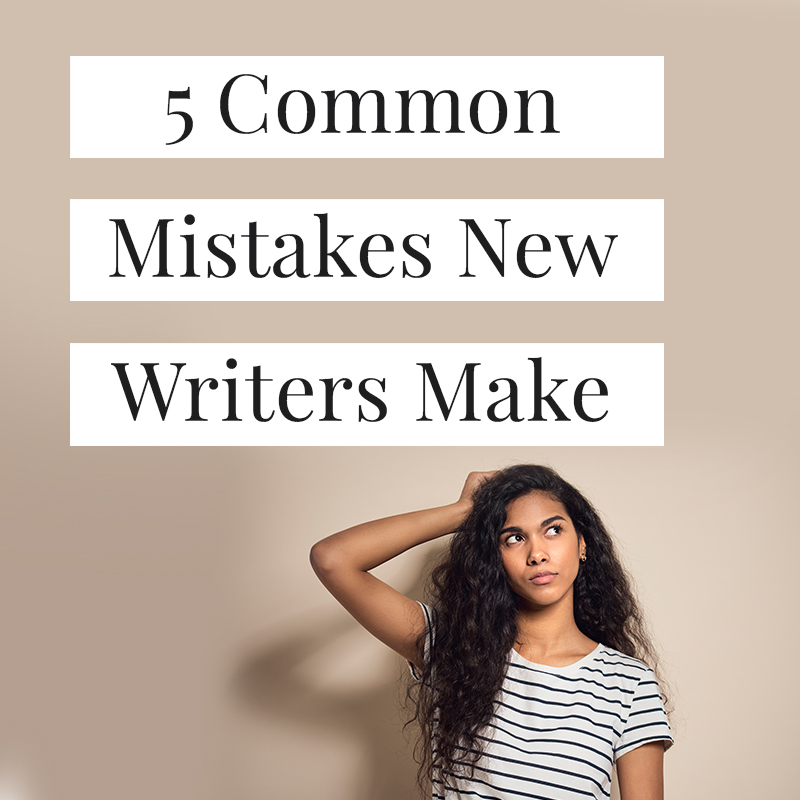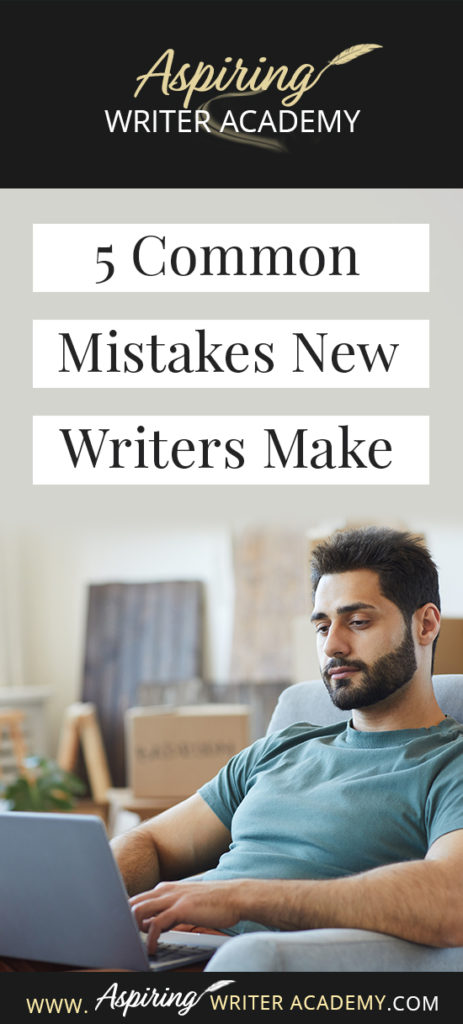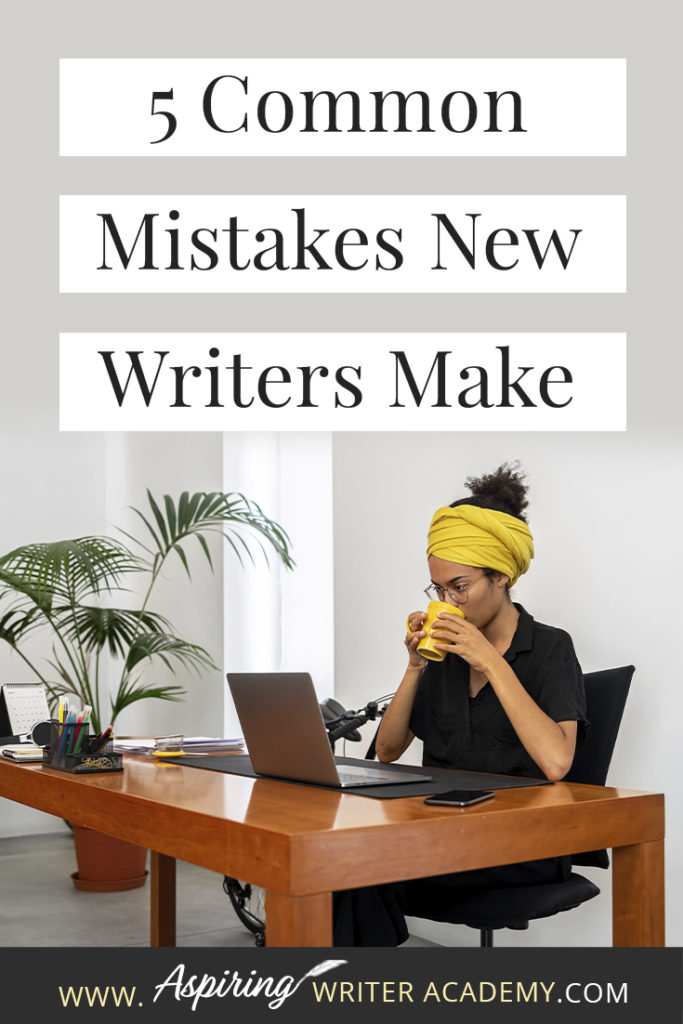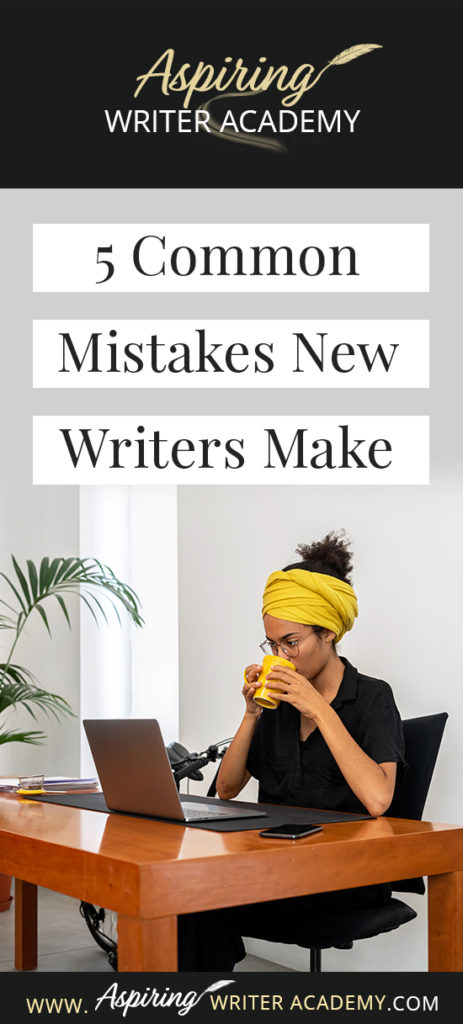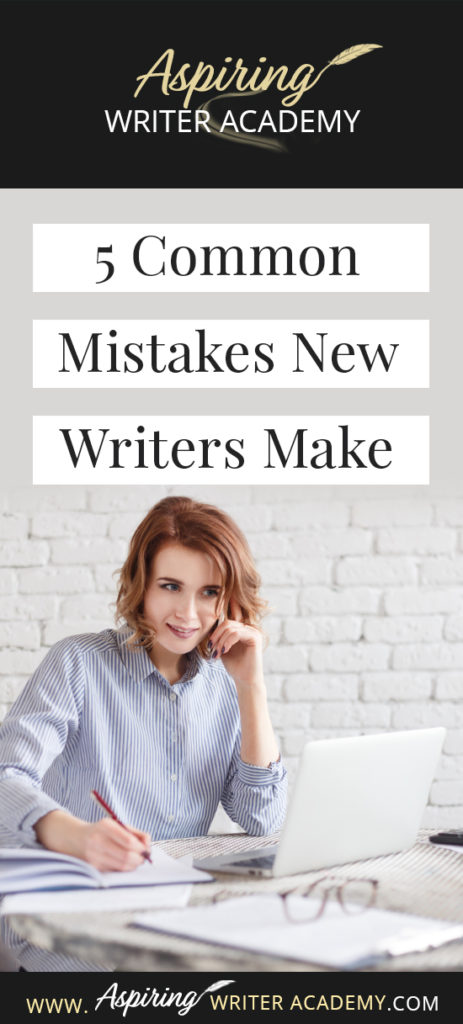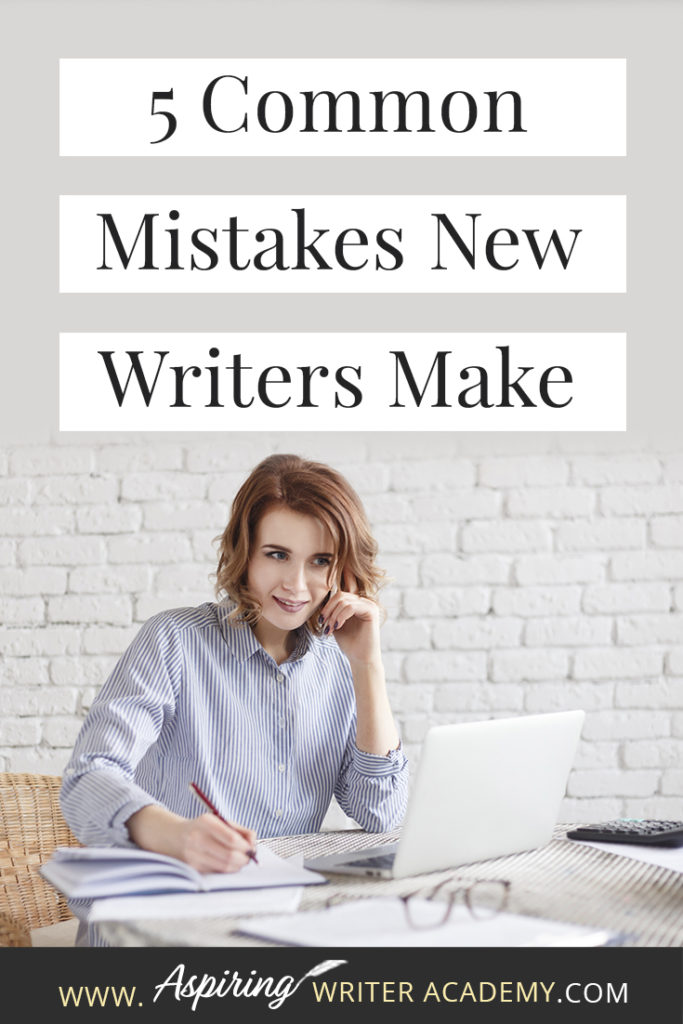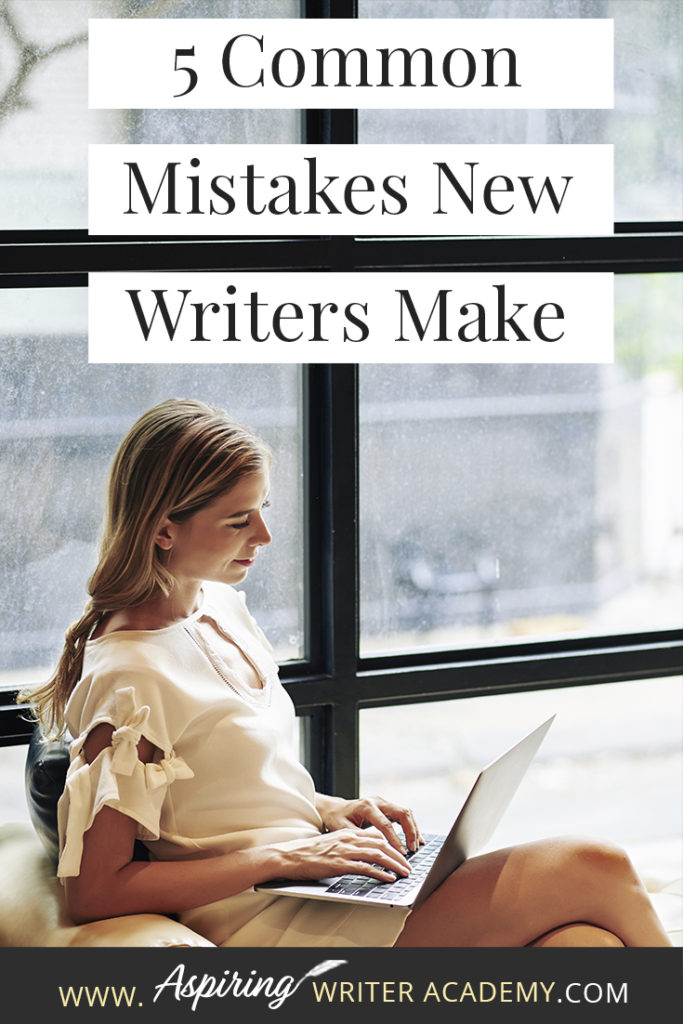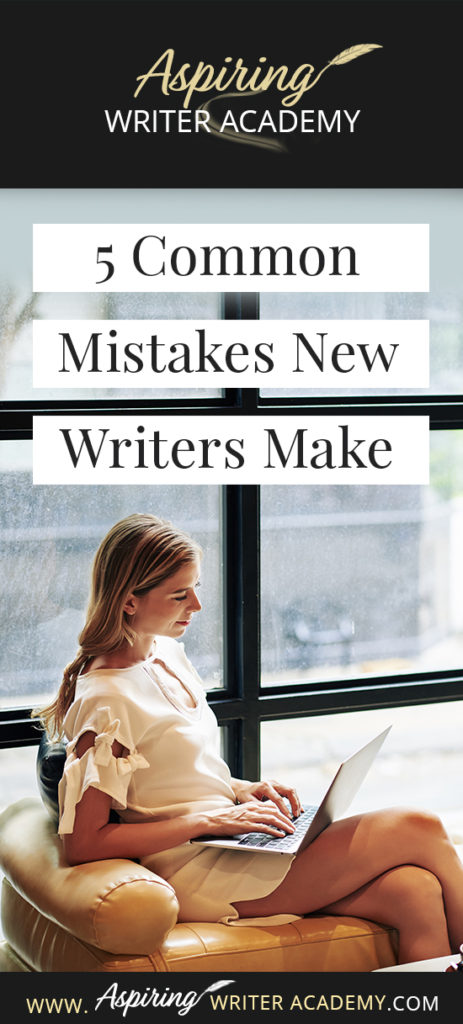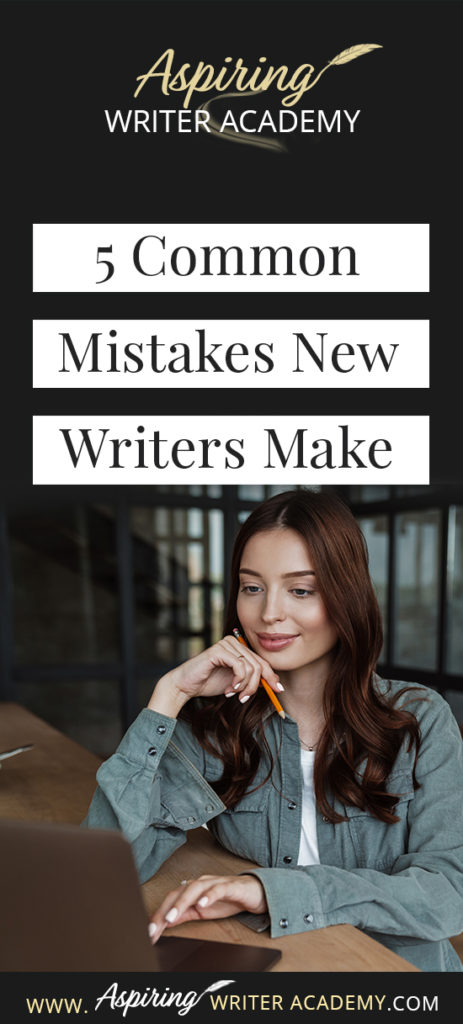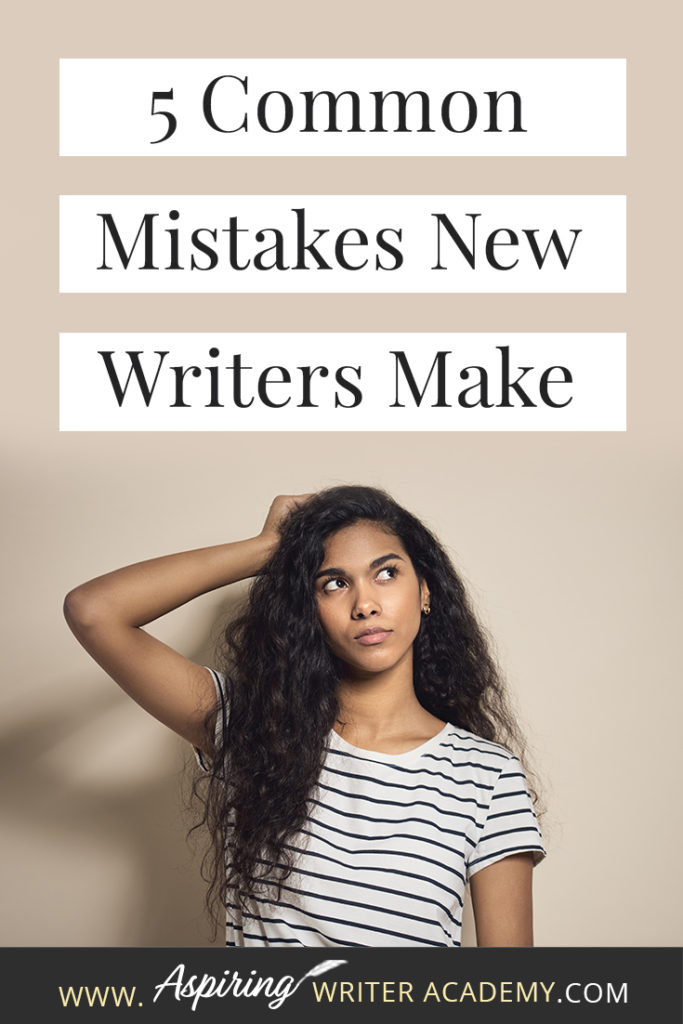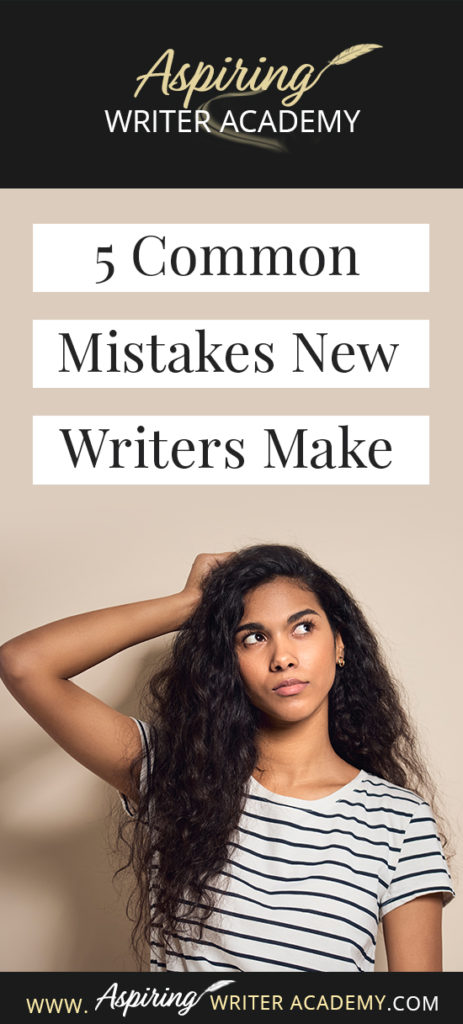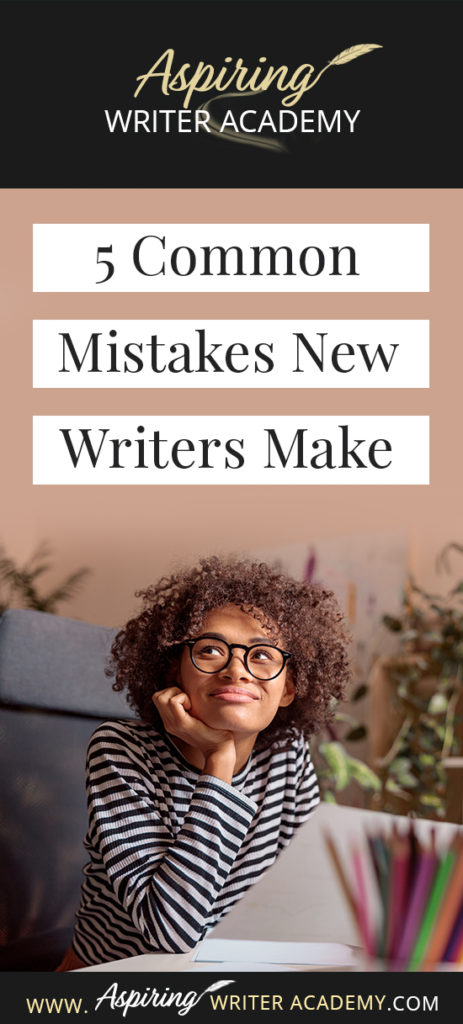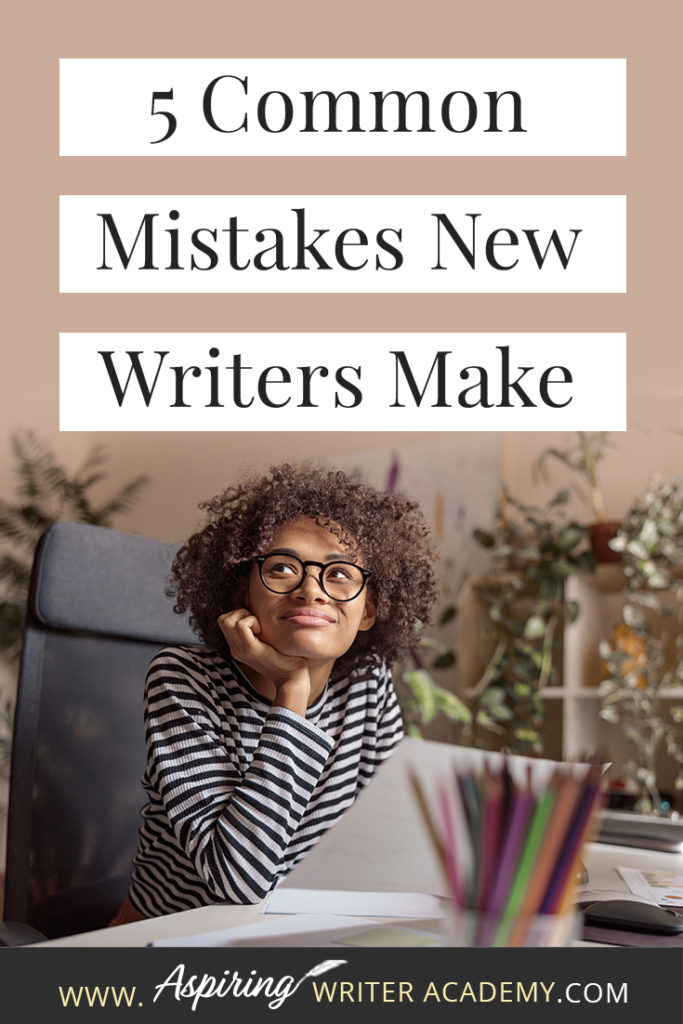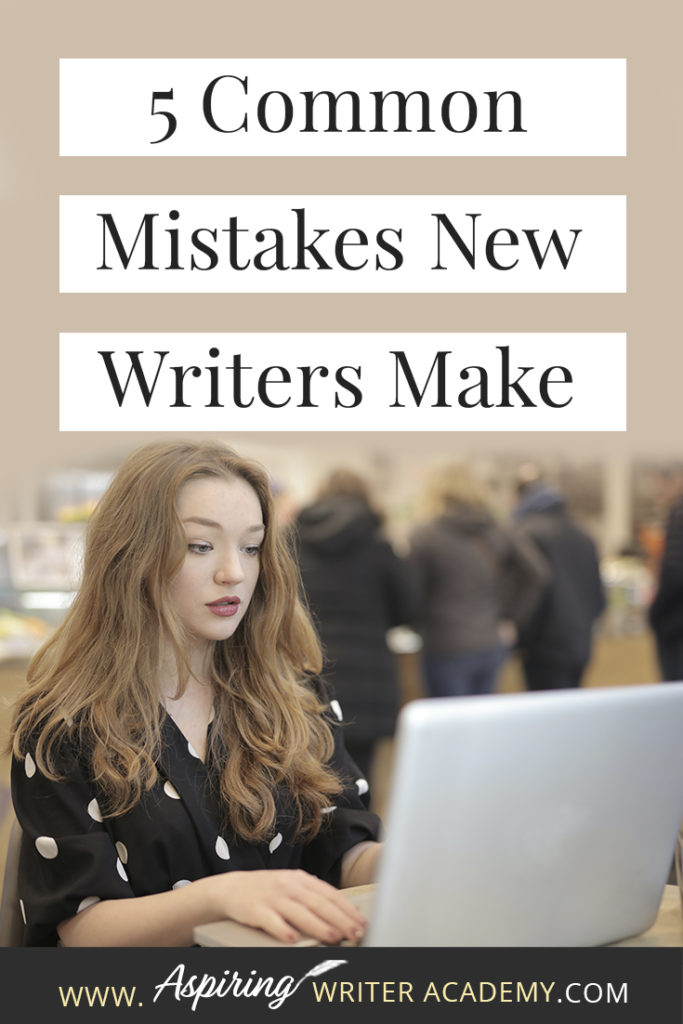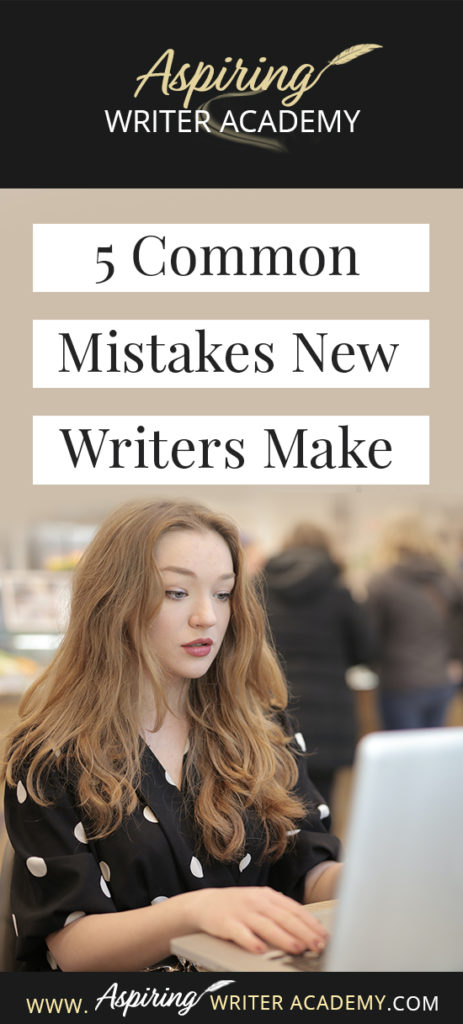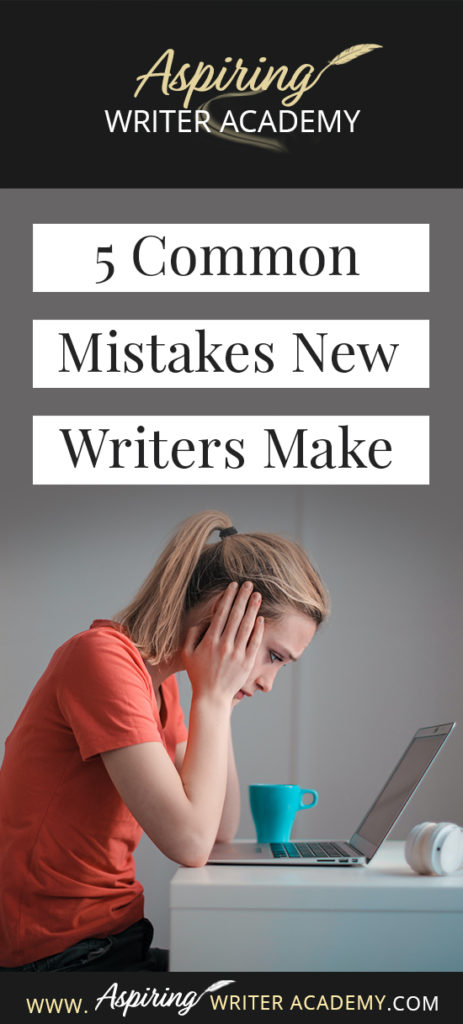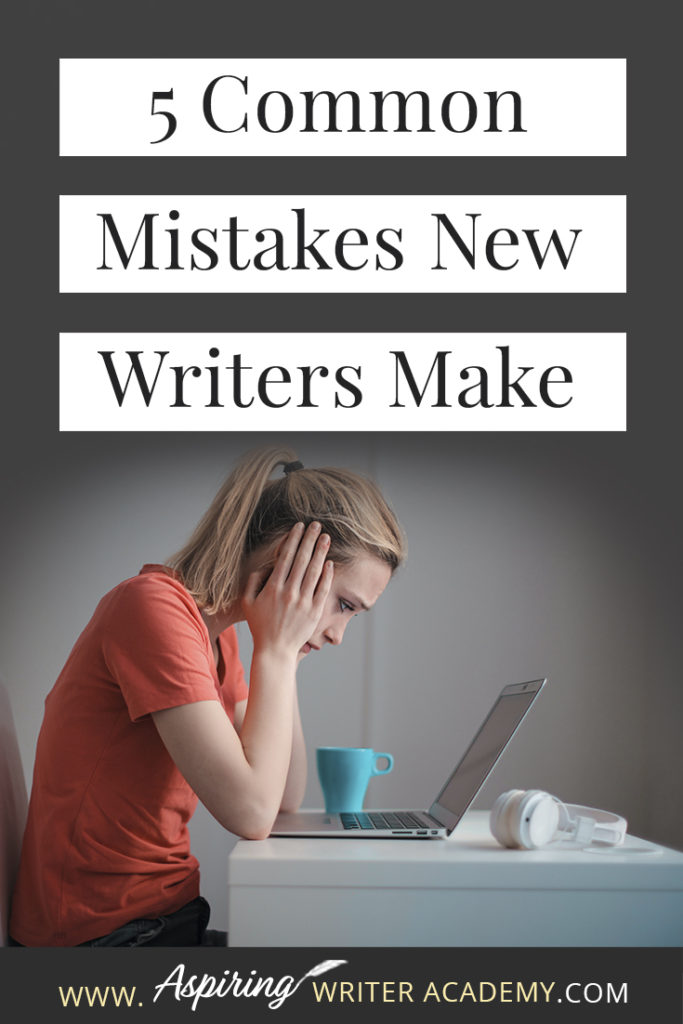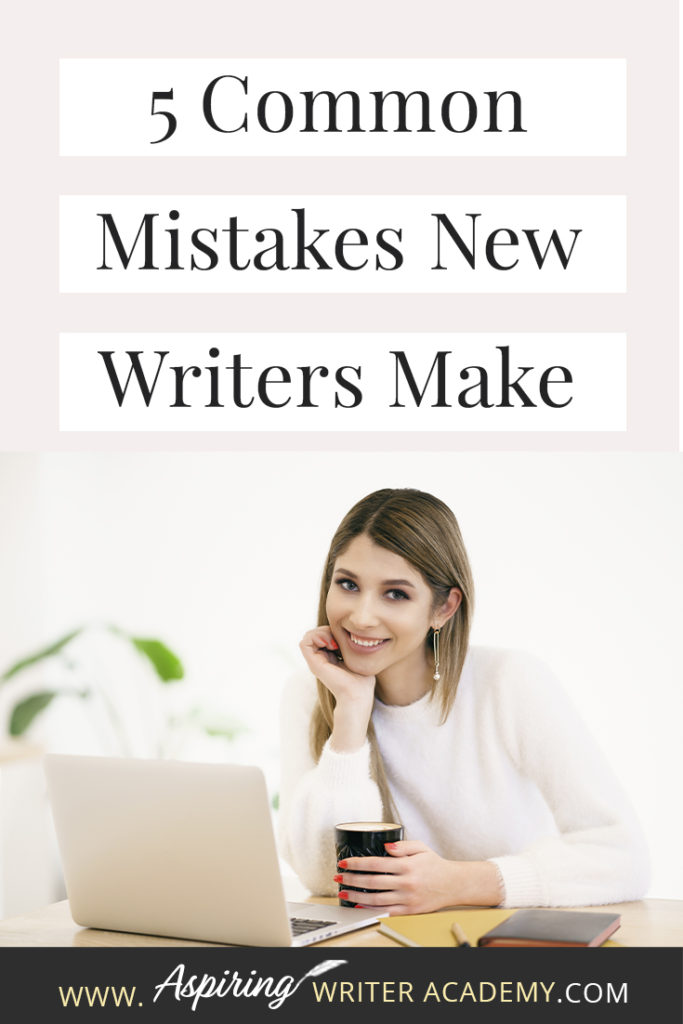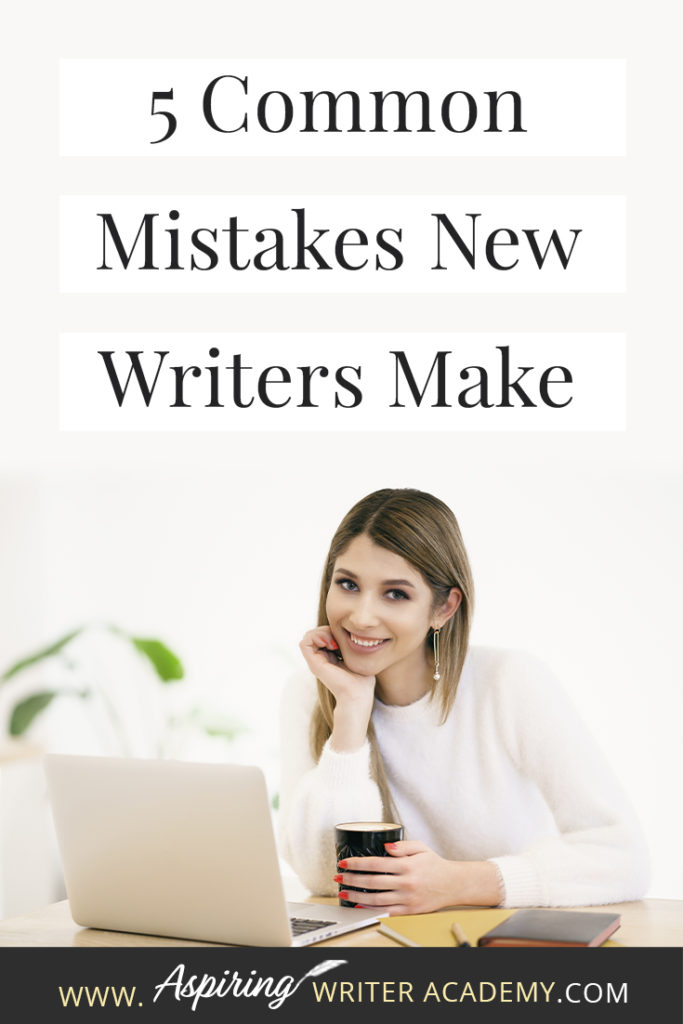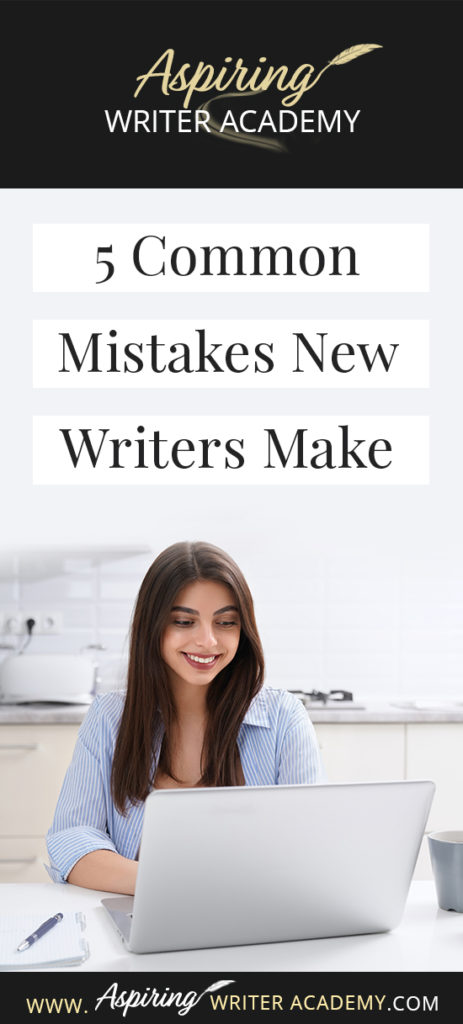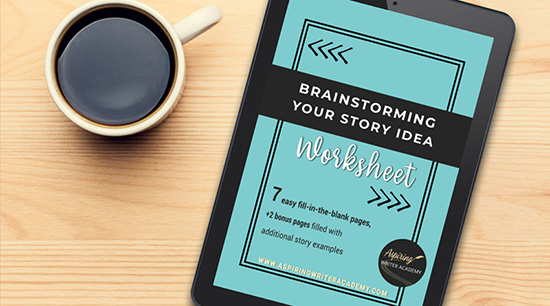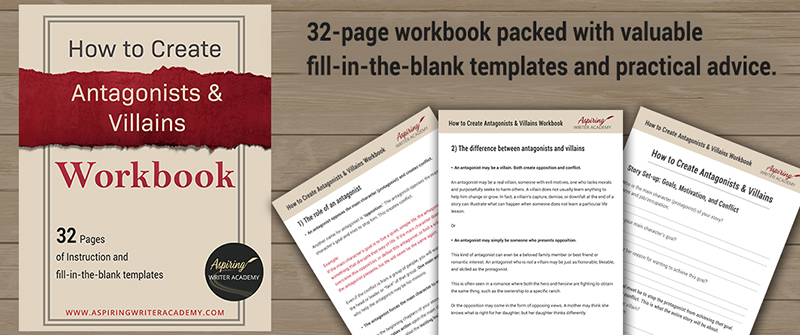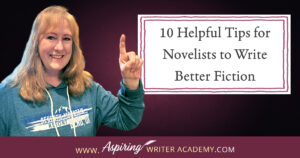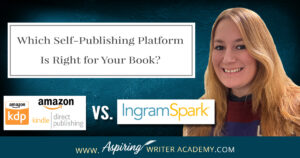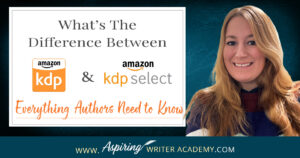5 Common Mistakes New Writers Make
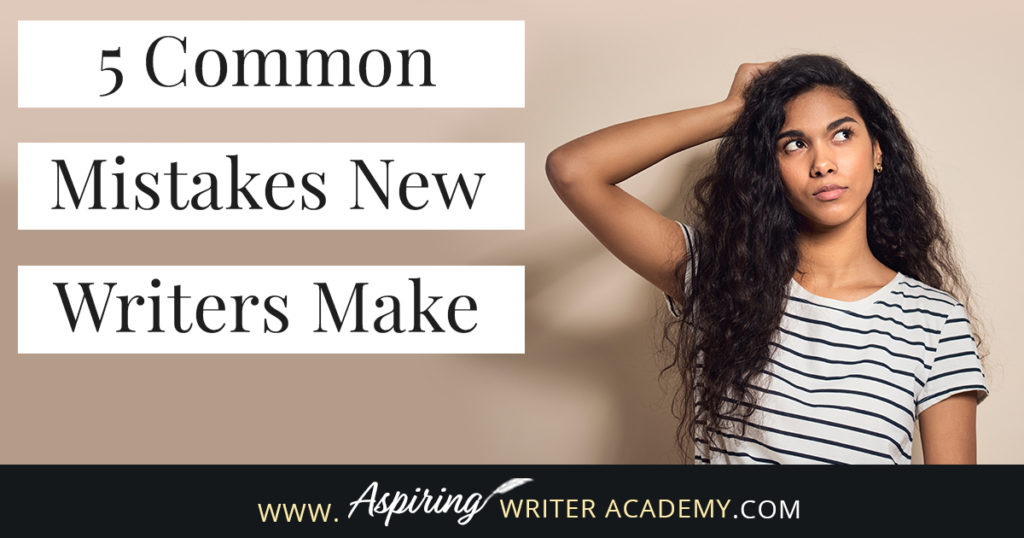
New writers often hold onto various misconceptions when it comes to writing and publishing. How do you know when your work is ready to publish? Do you really need to hire an editor? What expectations are realistic when publishing a first book? Will publishing houses help a new author with promotion? In our post, 5 Common Mistakes New Writers Make, we discuss these topics and more to help you avoid blunders and launch a flourishing writing career.
In the post below we will discuss:
- The First Draft
- Book Proposals
- Editing & Critique
- Industry Expectations
- Sales & Promotion
There have been many studies done which show the percentages of people who have thought of writing a book, tried writing a book, and who have finished writing a book. While the different numbers may vary from poll to poll, one thing is clear:
Of the large majority of people have thought of writing a book ‘someday,’ very few have attempted to do so, and far less ever finish the task.
One of the reasons so many never finish is because they have unrealistic expectations. Far too many aspiring writers believe writing and publishing a book is an easy way to fame and fortune.
However, nothing could be further from the truth.
Follow along as we look at several other common pitfalls so you can avoid being disillusioned and set yourself up for the best chance of success.
1) Believing the First Draft is the Final Draft
Many aspiring writers are so excited when they finally type ‘The End,’ they think that their work is finished, that the manuscript is ready for publication.
This is especially true if the writer decides to ‘do this on their own’ and is not connected with any type of writing group. (Which is why joining a writing group is so important!)
If the writer had connected with a writing community, he/she would soon learn that writing a first draft is a ‘discovery draft’ or rough draft at best, and most all first drafts of a book will need revisions. Many seasoned authors go through several rounds of revisions before sending their manuscript off to publishers, and then after getting the book accepted, there will be at least 3 more rounds of revisions with content editing, line editing, and copy editing.
Self-published manuscripts will also need editing, preferably from a hired professional. Revisions and editing are even more important if self-publishing, to make sure you are creating a product competitive with traditional publishing standards.
- Tip: After finishing the first draft, expect your manuscript to need several rounds of revisions before publication.
2) Pitching a Book Proposal to Agents & Editors Before it’s Ready
Aspiring writers may also be so excited by the fact that their book is finished, or an agent or editor is attending a writer conference, that they may ‘pitch’ or submit their book before it is ready, then are met with disappointment when the book is rejected.
- Tip: Take the time to learn the craft of writing.
Consider holding on to your first manuscript and write 2 or 3 others before pitching or submitting to an editor or an agent so you can grow your skills as a writer and gain the confidence you will need when it is time to publish.
One of the top questions an agent or editor will ask is: “What else have you got?” They may not like one story idea, but love another. Or they may be looking for a series. If you are an inexperienced or slow writer, you will be glad you have more than one book ready to go so you aren’t overwhelmed trying to meet impossible publishing deadlines.
For those writers who mistakenly think they can just write one book in their life and then be done — publishers aren’t looking for a one-hit wonder. You would be better off self-publishing. Traditional publishing houses know it takes time to build up an author’s career, through the publication of several books, and they are counting that their investment in you will pay off in the future.
- Tip: Be prepared to write several books, not just one.
Usually, with each manuscript you write, your skill will improve. Remember, your book will be in competition with all the other bestsellers in the publishing marketplace.
Also consider, are you, as an author, ready to publish?
Do you have a professional-looking website? An ever-growing email list? Professional social media accounts set up under a business author name? Do you have business cards? Have you taken the time to build your author brand or author platform?
If the book is accepted for publication, do you have a promotion plan?
While many aspiring writers think that they can worry about all that after they get a book contract, it is these very things that may help them get the contract. Waiting until after the book deal is too late. Every pre-published author needs to start working on these things now.
It is highly unlikely that a new author would receive a book contract if they do not at the very least have a website. A website is also one of the first places an editor or agent will visit to check you out when considering your book for publication. Next, they will check out your professional social media pages to see the level of interaction between you and your audience regarding your writing. (Not cat pictures.)
- Tip: Take time to learn about marketing and promotion, the business side of writing.
Again, connecting with a writing group, organization, or community would help with this. Take classes. Sign up for courses. Attend writer conferences. Join either in person or online. The value of networking cannot be underrated.
- Tip: Join writing groups.
3) Not Getting Feedback or Hiring an Editor Before Publishing
Of course, you can go back through your manuscript and do several rounds of revisions yourself, but before submitting your book to a publishing house, or self-publishing, you will need critique from valued, trusted individuals who are skilled in book editing. This can be your private critique group, Beta readers (who know what to look for), or a professional editor with a reputable clientele who has years of experience.
- Tip: Hire a professional editor to critique your work.
Option #3 may cost you the most money, but remember publishing is a business and as the CEO of your small business, you will need to pay for start-up costs and operating expenses. If you want to take your writing seriously and create the best possible product for the best sales – hire the professional.
- First, you may want to revise the manuscript yourself.
- Second, you may want critique from a mentor, critique group, or Beta Readers.
- Then after that, you may want to hire a professional editor before a final round of revisions.
If self-publishing, hiring an editor is essential. If you are aiming to submit to a traditional publishing house (who have their own editors), you may still want to hire an editor, so you have the best possible chance of landing a contract.
Another way to get valuable critique on your work is to enter contests. Most judges will give you constructive feedback on areas they see as strengths and weaknesses. Some judges may be either off-base or overly critical, but if the majority of comments you receive all refer to the same issue, then you will know what you need to revise.
Most contests (Google writing contests for your genre) require an entrance fee and some contests only take a certain amount of pages. However, a good judge’s comments may be exactly what you need for that section of your manuscript.
Having your beloved grandma, mother, or best friend read over your work is not enough. You need critique from someone who knows writing and publishing and is skilled in editing manuscripts.
You may even need to hire more than one editor. One editor may be skilled in big picture “macro” content edits, (evaluating the manuscript as a whole.) Another editor may specialize in line edits, looking for grammar, punctuation, and sentence structure errors. Some editors may do both. Make sure to get references and perhaps a sample edit before hiring an editor to make sure they are the right fit for you.
4) Believing a First Book Will Be a Bestseller & Make Lots of Money
It is very common for aspiring writers to dream big dreams and write their first book with stars in their eyes. Naïve fantasies of what life will look like after the book is published push them onward word after word, page after page.
Okay, (grin), if you talk to a bunch of writers, you will find we’ve all been there.
After all, writers are creative types with large imaginations!
But the truth is, most first books are not best sellers and do not make a huge amount of money. It takes time, and several published books, to build an author career. Even then, your books may never hit the best-seller list or make a ton of money. It all depends on your skill and experience. There are no guarantees in publishing.
You need to write because you love it, because you have a passion for writing. If your heart isn’t in the writing, your readers will know it. You can’t be in it just for the money. Many writers are not published for at least 5 to 6 years after they start writing, so those who are looking for instant cash would be far better off getting a 9-to-5 job that guarantees a weekly paycheck.
- Tip: Keep realistic expectations regarding money, and success, and strive to improve your writing skill with each book you write.
5) Thinking the Book Will Sell Itself or the Publisher Will Take Care of Promotion
Many aspiring writers are introverts who just want to write and would prefer to avoid the spotlight promotion may thrust on them. However, if you want an author career, you will find that you must step out of your comfort zone from time to time to let others know you have a book for sale.
The book will not sell itself.
Book promotion requires time and money. If you do not have the skill do so yourself, you may want to hire a graphic designer to create ads, banners for your website and social media platforms, or bookmarks.
You may consider making public appearances at book signings or local events. You may want to line up some speaking engagements to talk about your book, either in person or on podcasts. You might need to line up a blog tour and write guest blog posts.
If you self-publish, your promotion plan should be aggressive if you hope to sell books. But even if you publish with a traditional publishing house, you are still going to have to spend time on promotion.
Your publisher may help line up a few promotional opportunities for their authors, but the reality is that every author must step up to the plate and take control of their own book promotion. Editors may ask for your promotion plan before offering a book contract. They expect that if their publishing house publishers your book, that you will do everything in your power to get the word out and promote that book to produce the most sales possible.
Publishers will not take care of all the promotion for you.
- Tip: You must make a comprehensive plan for promotion and take steps to enact that plan. If needed, hire others to help you and take marketing classes.
How will you let people know that you have a book, a product to sell?
Re-cap of Writing Tips:
- Tip: After finishing the first draft, expect your manuscript to need several rounds of revisions before publication.
- Tip: Take the time to learn the craft of writing.
- Tip: Be prepared to write several books, not just one.
- Tip: Take time to learn about marketing and promotion, the business side of writing.
- Tip: Join writing groups.
- Tip: Hire a professional editor to critique your work.
- Tip: Keep realistic expectations regarding money, and success, and strive to improve your writing skill with each book you write.
- Tip: You must make a comprehensive plan for promotion and take steps to enact that plan. If needed, hire others to help you and take marketing classes.
I hope you have enjoyed reading, 5 Common Mistakes New Writers Make, and have discovered some valuable tips to help you avoid these errors so that you may launch a vibrant, long-lasting author career!
If you would like additional help, you may want to download our Free Brainstorming Your Story Idea Worksheet.
Do you find it difficult to create compelling antagonists and villains for your stories? Do your villains feel cartoonish and unbelievable? Do they lack motivation or a specific game plan? Discover the secrets to crafting villains that will stick with your readers long after they finish your story, with our How to Create Antagonists & Villains Workbook.
This 32-page instructional workbook is packed with valuable fill-in-the-blank templates and practical advice to help you create memorable and effective antagonists and villains. Whether you're a seasoned writer or just starting out, this workbook will take your writing to the next level.
If you have any questions or would like to leave a comment below, we would love to hear from you!
Our Goal for Aspiring Writer Academy is to help people learn how to write quality fiction, teach them to publish and promote their work, and to give them the necessary tools to pursue a writing career.
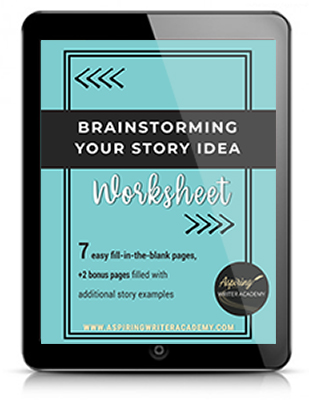
ENTER YOUR EMAIL BELOW
TO GET YOUR FREE
"Brainstorming Your Story Idea Worksheet"
7 easy fill-in-the-blank pages,
+ 2 bonus pages filled with additional story examples.
A valuable tool to develop story plots again and again.
Other Blog Posts You May Like
3 Ways to Avoid Writing ‘Episodic’ Scenes in Fiction
Author Chats: Kate Breslin & Book Launch Promotion
Fiction Writing: Office Supplies to Help You Prepare to Write Your Next Novel
How to Write Act I: Opening Scenes for Your Fictional Story
Brainstorming Fiction: What to Do When Your Story Gets “Stuck”
Learn to Plot Fiction Writing Series: Story Analysis of “Beauty and the Beast”
How to Plot Your Fictional Novel (with Free Template Included)
How to Research a Setting for Your Fictional Novel
5 Questions to Create Believable Villains
Why Your Characters Need Story-Worthy Goals
3 Levels of Goal Setting for Fiction Writers
Fiction Writing: How to Write a Back Cover Blurb that Sells
How to Captivate Your Readers with Scene-Ending Hooks
Fiction Writing: How to Name Your Cast of Characters
Scene & Sequel: The Secret to Plotting an Epic Novel
Scene & Sequel: The Secret to Plotting an Epic Novel (Part 2)
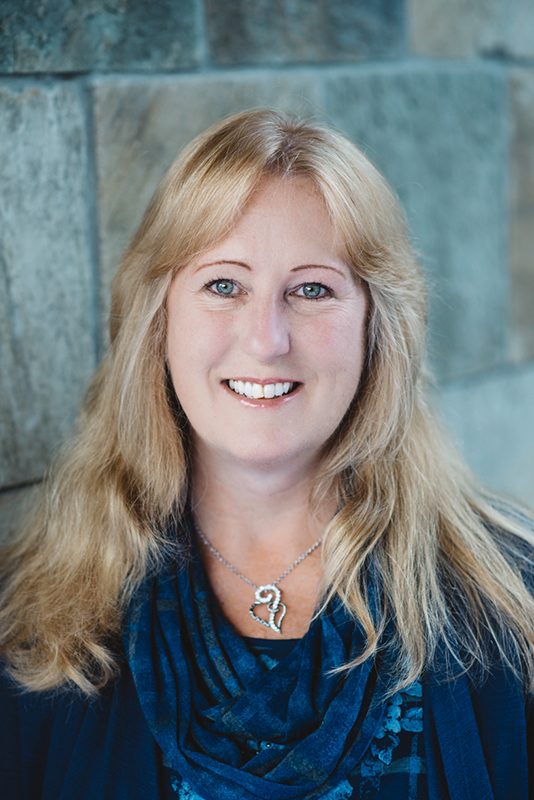
is a multi-published author, speaker, and writing coach. She writes sweet contemporary, inspirational, and historical romance and loves teaching aspiring writers how to write quality fiction. Read her inspiring story of how she published her first book and launched a successful writing career.
